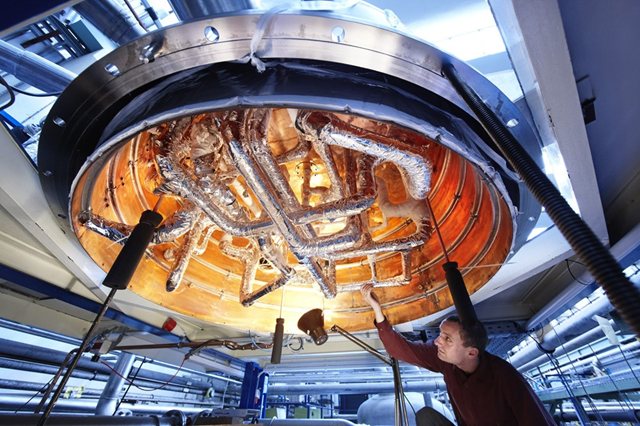ITER is far enough behind schedule that it needed an infusion of nearly $2 billion - accelerated from future budget years in a kind of economic hocus-pocus you and I are not allowed to engage in - but various EU parliaments, suffering their own budget shortfalls, seem to have little stomach for everyone not sharing their pain.
ITER, which is attempting to harness fusion for energy, began in 2008 and was scheduled to be completed by 2018 for $7 billion but there is no hope even by 2010 of either being realistic. The technical hurdles in in fusing together light atomic nuclei, the hydrogen isotopes deuterium and tritium, to form heavier atomic nuclei at temperatures of 100 million Celsius, are not slight but if legislators knew two years ago the cost would actually be closer to $21 billion as estimates say now, they would never have approved it.

Prototype cryogenic vacuum pumpat the Karlsruhe Institute of Technology. Photo: Peter Ginter
Underestimating big science projects harms all science in the long run - both by draining money from other worthwhile project that won't get approved and by adding to skepticism in government that administrators behind these larger projects have no idea what they are talking about regarding technical issues and costs.As I have said before, what projects like ITER or the James Webb Space Telescope need is an actual James Webb instead of more money thrown into a pit - Webb was a guy who knew how to get things done on time, on budget, to specification - not a career bureaucrat saying whatever it takes to get a pet project off the ground and leaving the problems for the future.





Comments